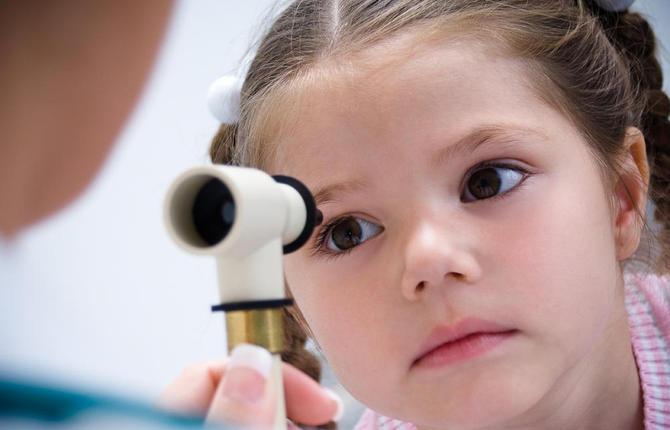
Good vision isn’t always easy to see
Have you considered the health of your child’s eyesight? Don’t feel bad if you haven’t. You are not alone. Eyesight may not be top of mind for most parents because the changes to your child’s eyes aren’t obvious. Your child’s eyes don’t require daily maintenance like teeth, or change like clothing sizes. But eyes do develop and change just like everything else.
Now your next thought might be: my child would have told me if he or she couldn’t see well. Unfortunately that is not always the case. Many young children don’t know what normal vision is like. They often think everyone sees the way they do because they have no way to compare. It is uncommon for them to complain about vision problems.
As many as one in six children will develop a vision problem that requires some form of correction. The good news is that it is never too late to have your child’s eyes examined. Eye examinations by optometrists are covered under provincial health insurance (OHIP) annually until 19 years of age. The Ontario Association of Optometrists recommends that a child’s first examination take place at around six months of age; and then again at age 3 years just before school. A child may be seen annually thereafter, or as recommended by the optometrist, depending on the health of the child’s vision.
Many conditions seen in children, such as lazy eye and turned eye, can be treated successfully if they are caught early. If missed, these conditions can result in irreversible visual impairment or a reduction in sight.
A comprehensive eye examination is more than just reading letters on a chart or a quick snap of an automated screening tool. Optometrists are highly trained eye doctors who use a variety of painless tests to evaluate that the eyes are healthy, seeing well and working together. And if your child can’t read yet, don’t worry – many tests use pictures or symbols and are actually fun to do!
Your child’s ability to see can greatly impact learning and development both in school, on the playground and at home. Studies have shown that uncorrected vision problems can directly delay the cognitive abilities of children as young as pre-school age. Sometimes children who struggle in school are diagnosed with a learning disability when in fact they just need a pair of glasses. Improved vision can have a positive impact on reading ability, hand eye coordination, and even behaviour and self esteem.
For information or to find an optometrist, visit the Ontario Association of Optometrists’ website at www.eyecareoao.com or call 1-800-540-3837.







